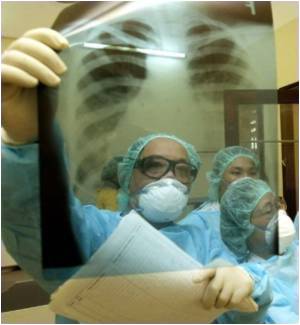A 10-year-old American girl underwent potentially life-saving surgery after a donor was found. Her dire need for a lung transplant catapulted her into the political spotlight.

The Pennsylvania girl, who suffers from cystic fibrosis and was said to be near death's door without a transplant, entered surgery early Wednesday after lungs from an adult donor were identified late Tuesday.
The case drew international attention when the child's family gave interviews to cable news networks and pleaded with the US government to bend the rules and allow her to be put on the list for an adult lung transplant.
She was at the top of a waiting list for children under 12, but pediatric donor lungs are far rarer than those from adults, and experts had given Sarah only a few weeks to live if doctors did not perform a transplant.
"The surgeons had no challenges resizing and transplanting the donor lungs -- the surgery went smoothly and Sarah did extremely well," her mother said.
"We are elated this day has come, but we also know our good news is another family's tragedy. That family made the decision to give Sarah the gift of life -- and they are the true heroes today."
Advertisement
Last week, a US judge took the unusual step of ordering that the child should be placed on an adult waiting list, after Secretary of Health and Human Services Kathleen Sebelius declined to intervene and the family filed a lawsuit, alleging that current US standards discriminated against children.
Advertisement
The practice of transplanting adult organs into children is relatively rare.
Just one lung transplant has occurred in the United States since 2007 involving a donor older than 18 and a recipient younger than 12, according to government data.
On Monday, the Organ Procurement and Transplantation Network agreed to revise its policy on transplant candidates 11 and under, which previously stated that children may only be considered for adult lungs if there were no other suitable candidates over age 12.
The changes -- effective for one year pending further review -- allow transplant programs to request higher priority for children and allow for doctors to consider transplanting lungs from teens or adult donors.
"The number of patients potentially affected by this policy is very small and unlikely to have a significant impact on the larger pool of transplant candidates," the OPTN said.
As of June 10, there were 1,659 candidates listed for a lung transplant nationwide, of whom 30 were under age 10.
Murnaghan was diagnosed as an infant with cystic fibrosis, a chronic lung disease that affects about 70,000 people worldwide. The median survival age is the late 30s.
While Murnaghan's case sparked a torrent of media attention, it also raised questions about the ethics of appealing for medical help in such a public way, with some experts fearing it could set a damaging precedent.
"It raised the question, can you sue or use PR (public relations) or otherwise campaign to get to the head of the line?" said Arthur Caplan, director of the division of medical ethics at New York University Langone Medical Center.
"In our system in the US, you sometimes can use money to gain an advantage. I don't think that is a startling revelation," he told AFP.
However, he added that the girl's apparent victory of getting a transplant does not guarantee it will be successful, and complications are frequent in such cases.
"I think this little girl got herself into the woods by her parents fighting for her, and that helped. But she is not out of the woods."
Source-AFP













